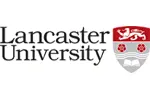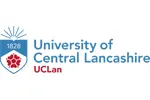Why Lancaster?
- Read, think, and write alongside tutors who are established authors of literature of all kinds, including creative-critical writing, the lyrical essay, and experimental criticism
- Contribute to Errant, our student-led journal of post-criticism, and be inspired by Lune, our tutor-led journal of hybrid writing
- Enjoy our rich programme of free literary events on campus, online, and in the city’s historic Castle Quarter
- Study online or join us in Lancaster on the doorstep to the Lake District, home of the Romantic poets, and inspiration for many writers since
- Make the most of our partnership with The Wordsworth Trust in Grasmere and Lancaster’s LitFest
Our department houses one of the oldest and largest creative writing programmes in the UK. We bring together critical and creative modes of reading and writing in myriad ways – some involving life-writing, some involving philosophy, and others involving visual images or even music. Here you’ll find a supportive, creative team and a place to research and express your ideas.
Critical / Creative
This programme provides a rare opportunity to combine, juxtapose, or even fuse critical and creative writing. You will spend your time producing:
- either a substantial creative text (such as a novel) alongside a critical text (such as a commentary on and around your novel)
- or a single hybrid text (such as a substantial piece of creative-critical writing)
Either way, we’ll guide and support you from beginning to end.
Support and events
You will meet regularly on a one-to-one basis with your tutor to discuss your work, and this can be either online or in person.
Our literary connections are embedded in the city and nearby Lake District. Many of our special literary events, such as talks from visiting scholars and authors, take place in The Storey, Lancaster’s Victorian Art Centre or at Lancaster’s spectacular medieval Castle.
The archive-rich Wordsworth Museum at Grasmere is usually the venue for our annual study retreat day, and the Department’s May Gathering, a social event, is usually held at Lancaster’s ancient Priory, as is our annual Literature and Religion Lecture.
It is also entirely possible to complete this PhD programme online via distance learning.
Supervison
Finding the right supervisor is key to your success. We would, therefore, recommend that you already have one in mind and contact them before submitting your application. To find out more, see here.
Before formally applying, we would encourage you to learn more about our many areas of research interests, and get in touch us with by email.









